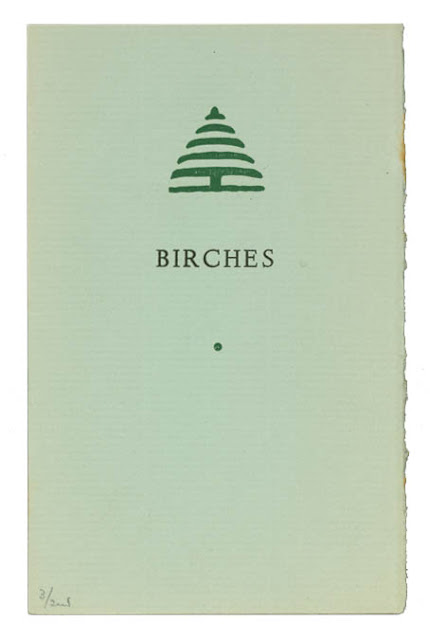Lillipuss
Isolated by vast stretches of the azure, indigo and ever-rolling Sea of Carnivalia, the Isle of Lillipuss is crowned by the Cidade do São Barbaro, the City of Saint the Barbarian, Matron Saint of the Marginalized, Punisher of the Privileged, Protrectress of Paparazzi, Idol of Indecidability.
Just inland from the harbor, its quay and a crescent strand of sandy beach, the commerce district occupies a narrow littoral, giving way to a small mountain, which rises abruptly from the bay, its whitewashed villas strung about its slopes like so many wreathes of pearls encircling a comely neck.
Atop the mountain, ever-lost within a labyrinth of curling mists, presiding over all of São Barbaro, all of Lillipuss and the surrounding Sea of Carnivalia, towers the Temple of Differance.
Historically, much of Lillipuss's importance lay in her splendid isolation, this due, in turn, to her refusal to occupy any set position on any map. A navigator's nightmare, the entire island, like the reigning Temple of Differance, is always hovering somewhere between presence and absence, lost within her veils of mist, so impossible to pinpoint she could be described only as occupying a kind of non-site, a non-location, a void. War fleets launched from her harbors could assail any enemy position while remaining based in an impregnable non-position. This ability to facilitate deep interdiction while permanently deferring any possibility of a counteroffensive is responsible for the island's legendary status as a strategic kingpin.
She thus remained for colonists only a dream, luring their fleets from afar with her various exotica--the beauty of the thousand mulatto hues of her natives and the bounty of her soil. Her ancient, orally transmitted tradition of sexual positions had inspired the 19th century French composer Jacques Roussaux to pen the lush, swelling string sections of his majestic symphony "Symphonie Érotique," and the aromatic-pungent clove-cinnamon-chocolates of her forests, wafting down through orchards of mango-custard-apple, drew spice merchant ships from every nano-quarter of the globe.
Great wave-swept points to the north of São Barbaro--Ponta do Concepão, Ponta do Governo, Ponta do Refugio and Ponta do Capitão--which provided the cobblestones for the islands streets, aqueducts, bridges and breakwaters, are still strewn with their timbers.
It was only the French who succeeded in colonizing the island. Yet, due to the uncanny instability of tongues on Lillipuss, the slipperiness of signifiers, the original French geographical names for points, coves, cities, capes, bays and rivers continually slide phonologically in one direction or another, so that the language resembles something like a curry of Spanish, French, Portuguese, and Romanian influences--though most of the higher classes also speak the local Baboo English--the repository of much of the isle's theory.
The closer to the Holy Temple of Differance one draws the more language becomes slippery. Yet, mysteriously, the Temple of Differance is the only nonlocation that retains its original French designation, though, of course, the natives have got the spelling wrong.
During Carnival, which officially throbs through the city for three months, but in reality is eternal, the holy image of the Goddess of Poetry, São Barbaro Herself, always concealed from general public view within the confines of the Holy Temple of Differance, is then almost revealed to Her worshipers. She is obscured at that time only by a thin veil of silk, dark whorls of heavenly incense, showers of flower petals, swirling waves of rose-jasmine water, impassioned chantings of the devout and vagrant and dusky tendrils of holy mist through which the fortunate might glean, in the blink of the instant, a glimmer of Her nonpresence.
How is X constructed in this text?
. . . where X stands for race, gender, sexuality, class--etc. The lyric is chanted in every marginalized tongue, in choriambic-hexametric-sapphic-iambic-asclepiadic-endecasyllabic-elegaic-dicolic-distrophe meter and in what might appear to be a monotone, the contemplation of an immovable tonic.
A closer listening, however, reveals that the monotone is never identical with itself from moment to moment, but unceasingly wavers, reaching a climax of difference on the accented syllables of words of the X set, which are privileged to be chanted a semitone higher. As happens so often in musical history, the form is far from being academically regular, in the normal sense, the privileged tone being broken up into florid variations of subtle microtones (much like the music of the tribes of Chang Naga, Dadike, Xosa, Lhota-Naga and Lepanto). These florid patterns are called copulae by their musicologists, who insist that the copulais "between discant and organum" partaking of the nature of both, yet unclassifiable as strictly one or the other--being betwixt and between them in genre and character.
The influence of this self-differing tone is vast. Every musical instrument, every bell, lute, nose flute, song and samba on Lillipuss is tuned, as closely as possible to the wavering tonic of the chant. Such a ringing resonance resounds roaringly throughout the land that it splits asunder the genetic code of all life on the island, so that within one generation every life form is a hybrid. Thus Lillipuss's great diversity.
There is one exception, however, the bull, which somehow remains impervious to this genetic mayhem. (It must be added that the wavering tone of the Temple of Differance is assisted in its hybridizing work by the fact that the Sea of Carnivalia surrounding Lillipuss, and all of the water on the island, is composed not of water molecules, but of microscopic hyphens, which lend every life-form an innate bias towards hybridizing, and which the temple tone serves only as a catalyst).
The memorization and recitation of the chant develops the students' sense of metric and rhythm. But it must not be thought that the chant represents a mere accumulation of knowledge--for it produces an educating, refining and broadening of a student's whole personality. Ideal learning is achieved only partially if one does not have the chant as one's paradigmatum. After all, the sacred syllables of the chant comprises the entire education in worldly wisdom and in ethical principles and moral conduct. Through the paradigmatum of the chant one learns to imitate the Great Example and thus to speak and write convincingly.
Without the chant, scholarly methods would simply be inept, lacking in grammatical finesse, encouraging sloppiness in style, bad taste, leading to the imposition of ignorance on others, promulgating lack of refinement and sophistication and lack of perception in aesthetic values.
The study and contemplation of the chant, the interpretation of its many commentaries, the craft of disputation--all sharpen young minds to defend the principles of the dogma against any conceivable attack. Mastery of the chant, with all its rich mythology and historical allusions, allows academic activity to rise above tepid scholarly quibbling about methods and theories that might forever remain either provincially insignificant or overarchingly essentialistic.
The students, the Scholars of Differance, must listen to their preaching, and no one must contradict them.
The stalls frame the streets on each side, or hoping to appropriate some coolness from the sea, line the water at the beach. At night their lanterns sparkle charmingly, dancing on the waves. Open boats moored in clusters yaw at their moorings, swaying upon the swells to the music of sitars, banana drums, and flutes echoing down the alleys. Truly São Barbaro at her most glorious!
Though chanting is the same homework the lads have rehearsed yesterday, and the day before, and the year before: the microtonal subtlety of the chant, capable of infinite nuances, is difficult to master.
How is X con - struc - ted in this text?
If you then proceeded down the Avenida de Difference, which during Carnival is tumescent with throngs of the devout streaming into the streets--some panting with the heat of religious ecstasy, others lost in serious and rather subtle grammatical analyses of the meaning and/or/neither/nor non-meaning of the phoneme a, still others lisping the syllables of the Temple chant in their enthusiasm at finally getting a non-glimpse of Holy Mother São Barbaro, you will find them fingering their rosaries in one hand and carrying flags, pennants and garlands of flowers in the other, plunging down the steep Avenida, pumped by holy fire into the streets like cooked sausages into their enveloping skins--dancing, cavorting, taking in the attractions of the bazaar: impromptu burlesques, juggling, acrobatics, tumbling, magical illusions, a candy merchant wielding enormously long chopsticks purveying his delicacies to customers on the street from his seventh-story balcony and rewarded with seven cakes of bull dung, a celebrant smeared head to foot with soot, tied with a lasso around his neck, and cavorting behind a dancer announcing him as a wild bear-skunk recently captured in the province of Spacing. In some booths patrons shoot blowguns at moving targets, and others, acrobats, perch monkey-anteaters on their noses while a woman practices archery with her feet and a charcoal-eating peacock-parrot-iguana from the interior swallows stones and hot coals. Next there is the strong-man baby, capable of elevating his mother to the level of a Goddess with one arm, a concession of lemon-loquat leaf broth, fried eel-tuna liver fritters, wandering masseurs, balladeers, fortune tellers. The crowd will press in all around, sweating, swarming, crushing all against a wall of flesh smelling of incense and fragrant oils of noonday cooking and romance. Amid the harmonious cacophony of children crying, blaring music of loudspeakers and bands, yells of police, shouts of hawkers selling de-marginalizations, contextualizations, and problemizations, all in tune to the clangor of multitudinous tintinnabulations of bells peeling like metallic angels above the Temple of Difference, you may find yourself crushed into fences of tightly woven palm-fronds surrounding one the largest and most exotic attractions: Non-Hybrid Species--recently smuggled onto the island--a horse, a cow, a snake charmer, a tortoise tamer, two Persian dromedaries. One stall exhibits a dead white male, rarely before seen on Lillipuss. A fifty-seven-foot whale-theorist, one of a species of literary savants whose literary theories have grown too unweildly to be carried about on land, recently beached on the island, has been lugged to the bazaar, the wonder being that a Tibeto-Tahitian expert in mummification has transformed the stench of the rotting carcass into a bouquet of sublime fragrances--clove-mango, sandalwood-guava--so that the crowd cannot get their noses close enough.
You will feel the river of bodies pushing you downwards, flooding downwards, down the steep Avenida, gushing past stalls of mermaids alive in glass cauldrons seething with warm mango juice, a woman wrestling twelve lascivious blind masseurs simultaneously. Another woman blowing smoke in the form of pure textuality, and for those who cannot read or write--most of the crowd--she somehow fashions the smoke to assume the form of a hallucinogenic stream of horrifically exotic, unimaginable things: ducks, dogs, chickens, flies, sardines.
You will find yourself pulled past a popular contrivance --an engine employed for improving speculative, theoretical knowledge--though it can be used with any discourse. The contrivance consists of a large frame presided over by a leading professor of the Holy Temple of Difference monastery. The frame is surrounded by his students, who stand in ranks. The contrivance is twenty feet on each side. Inside the frame the contrivance consists of myriad pieces of wood to which various wires are attached. On each piece of wood, a piece of paper containing a word of Bakhtin's From the Prehistory of Novelistic Discourse is pasted. When the professor sets the contrivance to work, the students each take hold of an iron handle, of which many are placed around the frame, and as they turn the handles, the words of the history rearrange themselves miraculously, giving the passage a whole new meaning.
Once the students have mastered this art, they may then hope to become ecstatic's.
As the surge of Carnival tumbles you downwards on its irresistible current, you may find yourself arrested by immobilized groups of these ecstatic's, a cult of poet-illuminati mimes called Illuminatos or Alumbrados, depending on whether the language that day leans closer to Portuguese or Spanish. They paint one half of their faces and tailor one half of their clothing to argue one perspective of a novel, poem, play, fortune-cookie message, menu or academic paper, and the other half to argue its opposite. Never referring to genres, they refer to all pieces of their literature as texts.
Novices of the cult dress as fishermen of the coast from one angle, and a woodsmen of the mountains from another. They carry baskets on their backs, with octopus-barracuda on the fisherman side and banyan-tamarind on the other.
The fisherman side says: "In my opinion those who live in the city simply show a nostalgia for a center. Those who worship at the Temple of Differance yearn secretly for a transcendental signified. They will never know the carefree ways of fishing in the fair coastal waters."
"It's true what you say," will reply the woodsman-half of his face. "But your fair waters can never compare with my blue mountains!"
"Your blue mountains are lovely, but they are no match for my fair waters," will retort the fisherman half. "I will prove it with the following poem."
The prow of my boat bucks the blue sea swells,
Bull-kelp bulbs bobbing like heads in a crowd.
Rounding the point, I reach still cove waters,
Anchor, and languidly doze in the sun.
The woodsman will reply," Your fair waters and your 'doze' are very nice; but how can they challenge my blue mountains and my 'doze?' Listen to my poem."
The evening breeze wafts the sweet scents of springtime;
The moonlight flows brilliant among the dark pines.
I loosen my robe, take a doze on my pillow,
My bed sheets illumined with fragrant gold.
They may argue on in this way for hours, each half of their faces playing on obscure, subtle or humorous puns and etymologies to subvert the arguments of the other half. Their low, vulgar level of illumination is illustrated by the fact that he must resort to the most debased form of literature--verse. More subtle devotees of the cult you will find less oppositional, more diological or heteroglossial, presenting an endless play of flickering features, personas, positions and puns from behind flickering fans, like dreaming peacocks spreading endlessly plumed tails fluttering amid whirlpools of color.
The most advanced illuminatos, however, at times become caught up in moments of indecidability or undecidability--no one is quite certain which--remaining motionless and speechless for moments or months--depending upon their degree of illumination.
Some attain such an aporaic pause after just a few paragraphs of text; others, still more advanced, attain after just a few syllables.
The true master, and founder of the cult, a man of obscure origins, was reputed in his youth to have attained a prolonged state of aporia through contemplation of just one phoneme.
Yet, it is said that in his latter years the master never recited even a phoneme--for he considered speech a fallen form of communication. He would only stand transfixed, holding a text before him for all to read, but which he considered to be always already unreadable.
At such times a mirror held up to his nostrils would show he was without breath; and one year the islanders buried him in a coffin for six years while he was contemplating the difference between the phoneme "e" and the phoneme "a."
When the coffin was dug up, it was empty.
As the islanders learned of his disappearance a wave of aporaic play swept over Carnivalia like St. Vituses dance--one would find entire villages immobilized as mocca-mango apples fell, rotting, to the ground.
As the crowd crunches to a halt before the Illuminados you may find yourself gasping for air among a sea of surging bodies. Your breath, you may notice, will be so labored, so mysteriously passionate, the meaning of your syllables so interfused with the proclitic resonance of the Temple of Differance chanting, the clangor of its bells, the resonant clamor of the crowd, all reverberating with the fiery throbbings of the masses crushing in on you from every direction, that you will no longer be able to distinguish abstract theory from the firm, rhythmic pressure of multi-colored, multi-limbed, multiscented, sweet Carnival.
Floating, fluttering, fainting--flooding into your blue, blue heaven--falling to the earth, fulfilled by sweet, sweet Theoria, carnivalers falling all about you, falling away to clear a path for avalanches of indifferent sumo wrestlers, each wrestling an invisible opponent, rolling like cannonballs down the Avenida de Difference from the Holy Temple of Differance, the crowd falls back and watches as they knock over immobilized Illuminados like so many bowling pins.


















Comments
Post a Comment